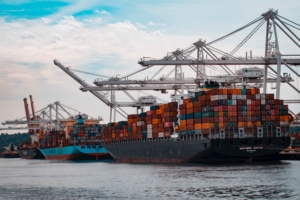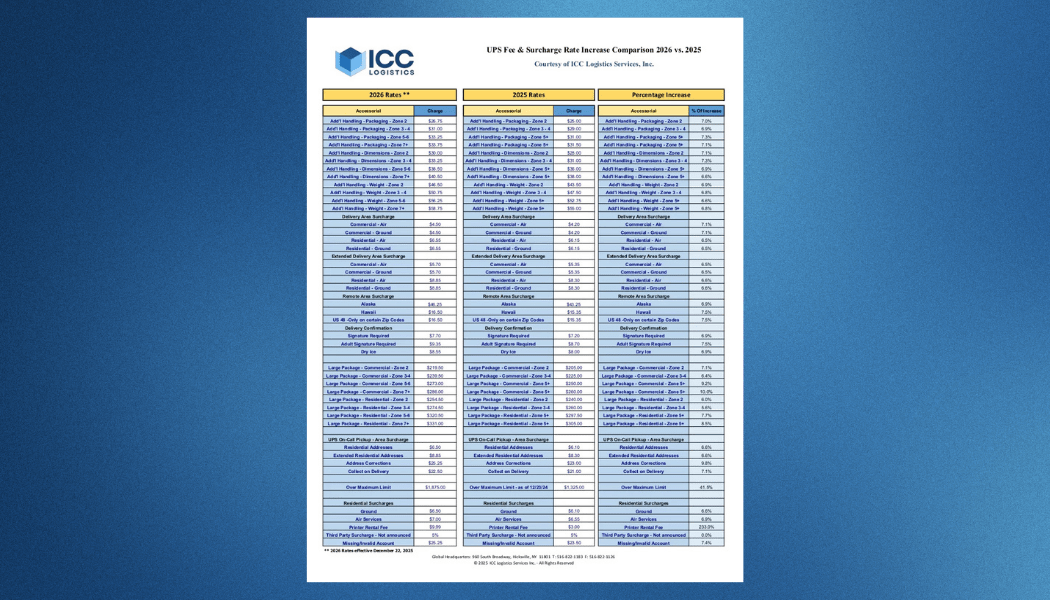In an effort to entice the ocean carriers and ultimately the owners of import ocean cargo to move their containers off the dock, the Ports of LA and Long Beach will be implementing a $100.00 per container surcharge for each day a container remains at the dock beyond that sit for more than nine days.
The fees are actually penalties initially imposed upon the ocean carriers for not quickly clearing out imported containers piling up in their terminals, but a lack of details in the press release left freight industry stakeholders confused about how the rules will be applied.

The two Southern California ports said they will begin charging ocean carriers $100 per container, compounding in $100 increments each day, for containers scheduled to move by truck that sit for nine days or more, beginning next Monday, November 1st. For containers moving by rail, shipping lines will be charged if the container has dwelled for three days or more. For example, a box that sits longer than the allotted time would cost a carrier $100 on the first day after storage time for truck moves expired, $200 on the second day, $300 on the third day, $400 on day four and $500 on the fifth day for a grand total of $1,500.
According to American Shipper, within minutes of the announcement by the twin ports, container lines began sending letters to importers alerting them to be prepared for the new surcharges, Matt Schrap, CEO of the Harbor Trucking Association stated. “So clearly, they are not just absorbing these costs as a part of doing business to get this cargo out. They are passing these costs on to the beneficial cargo owner, which as we all know goes right into the American consumer’s bottom line,” he said.
According to American Shipper, there are more questions than answers, at least at this point.
Initial indications were that the fines apply to cargo for which the carriers arrange all inland transportation beyond the port, known as a door-to-door move. But Schrap said he’s now hearing that all haulage — including container movements directed by the merchant through its own transport provider — are covered. And the surcharges apply only to loaded containers, not empties. “I can’t seem to get a straight answer. Until we see it in black and white, the message to the ocean carriers is, move the stuff or you’re going to start getting fined,” he said.

The fines are the latest attempt to expedite the clearance of shipping containers off the docks amid a supply chain crisis that has gained national attention on newscasts and at the White House, as retailers prepare for lost holiday sales with goods stuck at ports and on vessels at sea.
“We must expedite the movement of cargo through the ports to work down the number of ships at anchor,” Port of Los Angeles Executive Director Gene Seroka said in a statement. “Approximately 40% of the containers on our terminals today fall into the two categories. If we can clear this idling cargo, we’ll have much more space on our terminals to accept empties, handle exports, and improve fluidity for the wide range of cargo owners who utilize our ports.”
It is estimated that there are over 107 container ships currently waiting offshore for a parking spot at the port complexes.
Ocean carriers and their representatives in Washington said they are still trying to get more details and better understand the new fees, which the port authorities said were determined in consultation with White House, U.S. Department of Transportation and multiple industry participants.
Schrap said new measures should target empty containers that can’t easily be returned to full terminals because it “would motivate the carriers to send a sweeper ship in to get them out of here” and clear room for loaded imports. Several freight experts expressed skepticism about whom the fees will actually impact, why carriers are being singled out and whether the ports have the legal authority to impose late fees.
“I don’t know how they can pick out one part of the supply chain and charge them when in fact the issue is caused by many parts of the chain, not just carriers, but the terminals, truckers, chassis providers, railroads, warehouses and shippers,” said an executive for a large freight management company who spoke on condition of anonymity because he is not authorized to speak publicly.
A maritime industry consultant who asked not to be named so as not to upset clients said the Shipping Act gives port authorities the power to set fees. A key procedural question, however, is whether they set up the joint surcharges under Federal Maritime Commission auspices. Any policy made between competing ports outside of an FMC agreement raises competition concerns.
The daily fees for containers that linger at terminals appear designed to pressure shippers to collect containers faster. The port authorities had to direct the surcharges against carriers with terminal leases because they don’t have jurisdiction over importers, though officials realize the customer is likely to ultimately pay….What else is new?!
Need support to help navigate the supply chain challenges? Reach out to us today to learn more!



 to receive our FREE white papers:
to receive our FREE white papers: